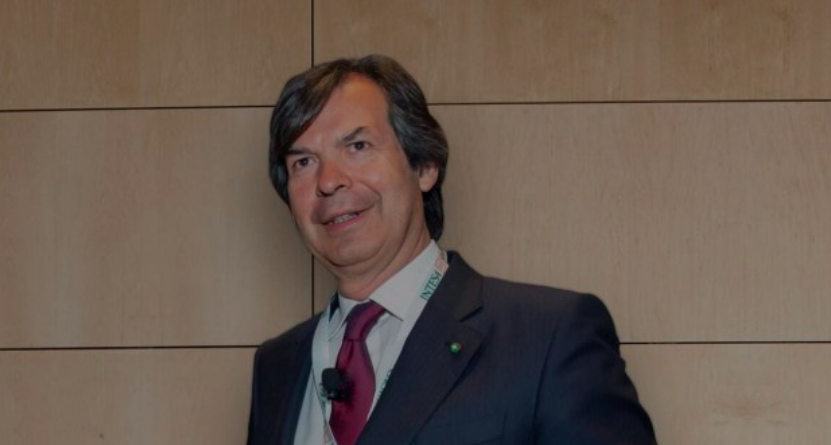Milan- “The crucial point is public debt. Here’s a five-step plan to decrease it. Let’s do it today. If we think about it a year from now, it’ll be too late.” In an interview with Fabio Tamburini, director of Sole 24 Ore, the most important economic and financial daily newspaper in Italy, Intesa Sanpaolo’s CEO, Carlo Messina, explains how to reduce the public debt and promote recovery after the COVID. Messina’s words are clear in analyzing the scenario in all of its complexity and pointing out solutions that can be activated immidiately.
Leverage is necessary on social bonds as well as the return of capital from abroad, valorization of public assets, public investments and in the green economy, facilitated use of the Tfr in tax-exempt public securities. Only guaranteeing liquidity and survival to companies is not enough”, says Messina.
The CEO of Intesa Sanpaolo, the most important Italian Banking Group, agrees with the government’s choices to counteract the health emergency, support employment and guarantee liquidity to companies: « The use of public debt … is a necessary choice ». Messina would like to see the addition of non-repayable state funding that does not increase the debt supported by companies. To keep alive those who have lost six months of revenue… is decisive because they have to play a game that goes beyond Europe, on international markets”.
But Messina warns against moving towards excessive levels of the ratio between public debt and gross domestic product: “We must oppose the prospect of having to deal with a too high public debt. It would all fall on future generations. Already today every child born in Italy has a significant debt on its shoulders”.
“We are working on a sustainable model for the whole country – explained Messina – based on our strengths: the ability of the entrepreneurial system to export and the high level of savings of Italians… We use this extraordinary discontinuity to overcome the unresolved knots of the system”.
The CEO of Intesa Sanpaolo points out that a minimal part of Italians’ savings is invested in government bonds – only 4%: “Italy is rich, much richer than Holland and Germany itself. We are talking about 10 trillion euros, between company resources and household savings”.
 “We need to create the conditions so that Italians are convinced to move part of their wealth towards the purchase of securities that we could call social bonds”. Carlo Messina’s idea is to develop a new financial instrument that allows the State to raise funds from private individuals to finance projects with a high social impact. Called social bonds, they would offer competitive returns, tax relief and a penal shield for those who transfer capital from abroad. It is estimated that 100-200 billion euros of Italian savings are outside Italy. “So there would be an actual possibility of increasing the portion of public debt controlled by Italian private savings from 5% to 10-20%”.
“We need to create the conditions so that Italians are convinced to move part of their wealth towards the purchase of securities that we could call social bonds”. Carlo Messina’s idea is to develop a new financial instrument that allows the State to raise funds from private individuals to finance projects with a high social impact. Called social bonds, they would offer competitive returns, tax relief and a penal shield for those who transfer capital from abroad. It is estimated that 100-200 billion euros of Italian savings are outside Italy. “So there would be an actual possibility of increasing the portion of public debt controlled by Italian private savings from 5% to 10-20%”.
The action plan to reduce the public debt and promote recovery after COVID proposed by the CEO of Intesa Sanpaolo is divided into five practical points:
– Emission of social bonds
– Encouraging the return to Italy of companies that have moved abroad to obtain tax advantages; “it is an opportunity to affirm the pride of being Italian”.
– Creating the conditions for a part of the 26 billion Tfr set aside each year to be invested in tax-free public securities
– Issuing securities that have as subscribers both institutional investors and families and as underlying public real estate; “would lighten the State budget with another important effect: bringing citizens closer to local real estate assets”.
– Unlock investments on several fronts, especially the 150 billion public funds already accounted for infrastructure interventions
“The other strand to be stimulated is the 150 billion euros to promote the green economy… It would be a formidable boost for the country,” says Messina.
Carlo Messina, finally, in the interview with Sole 24 Ore, reiterated his appeal for solidarity from those who are able to help. “The sections of the country that were in precarious conditions are affected by the crisis and it must be avoided that the emergency becomes even more urgent… could bring the number of people in serious difficulties in Italy to 10 million”.
The CEO concludes by recalling that today Intesa Sanpaolo provides 3.5 million meals a year for those in difficult conditions: “Well, we will multiply them by five. All this must be reproduced on a large scale, with the aim of allowing the social stability of the country”.
(Associated Medias)




